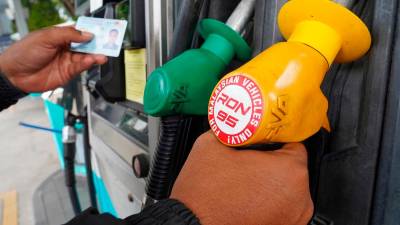PETALING JAYA: Malaysians have largely welcomed the government’s move to lower RON95 petrol prices from RM2.05 to RM1.99 per litre, but reactions are mixed on whether the six-sen cut will meaningfully ease household expenses.
The reduction, introduced under the Budi Madani RON95 targeted subsidy, applies only to Malaysian citizens.
For operations executive Nur Qalbi Ruslan, 39, the savings are noticeable but limited.
“I support the government lowering the price, but for me, it doesn’t make much difference because the reduction is only six sen per litre.
“If divided by 300 litres per month, that’s only about RM18 in savings. Meanwhile, other taxes imposed by the government amount to more than RM18,” she said.
Nur Qalbi also flagged the 300-litre monthly cap as a challenge.
“For my family, 300 litres per month is not enough. Usually, we use 500 to 600 litres per month, including interstate travel as well as outstation trips for work,” she said.
She added that relying on the MyKad system could be problematic.
“It’s troublesome because the system may experience downtime, which makes it difficult to purchase subsidised petrol. On top of that, misuse of MyKad and data leaks can also easily happen.”
Tina Majid, 54, a logistics manager, said the 300-litre cap works for her household but is limiting for her husband.
“For me personally, 300 litres is enough since I only use the car for commuting and daily errands. But my husband travels long distances frequently for work, so for him it’s definitely not enough. In the end, fuel expenses still weigh heavily on our family budget,” she said.
On the use of MyKad for subsidy redemption, Tina described it as practical but warned of potential glitches at petrol stations.
Azmin (not his real name) took a more positive view, noting that even small savings can add up for commuters.
“Even though the difference looks small, over time it can still save some money. Hopefully in the future, the price can be reduced further,” he said.
On subsidies being limited to Malaysians, he agreed it was fair.
“The money from subsidies comes from the nation’s funds, so logically only citizens should benefit. Foreigners can still buy fuel, just not at the subsidised price – same as with RON97,” he said, adding that MyKad is convenient so long as it works reliably.
“Everyone already has a MyKad, so there’s no need to install apps. But if the card suddenly can’t be scanned at the petrol station, that would be troublesome. Senior citizens may also struggle with the technology.”
For analyst Muhammad Danish Afwan, 25, the subsidy could help lower household costs but comes with risks.
“This reduction can help lower household expenses. I feel that this move is likely to have a positive impact on overall household spending,” he said, strongly supporting the citizen-only policy.
However, he noted the system’s vulnerabilities.
“The likelihood of losing a wallet or MyKad increases. Additionally, the system can ‘go down’ unexpectedly. I hope the government, petrol stations and other relevant stakeholders have prepared a mitigation plan before fully implementing this redemption system.”
While many welcome the price cut as a gesture to ease financial burden, the feedback highlights lingering concerns over its practical impact, the adequacy of the 300-litre cap and the reliability of a MyKad-based redemption system.
